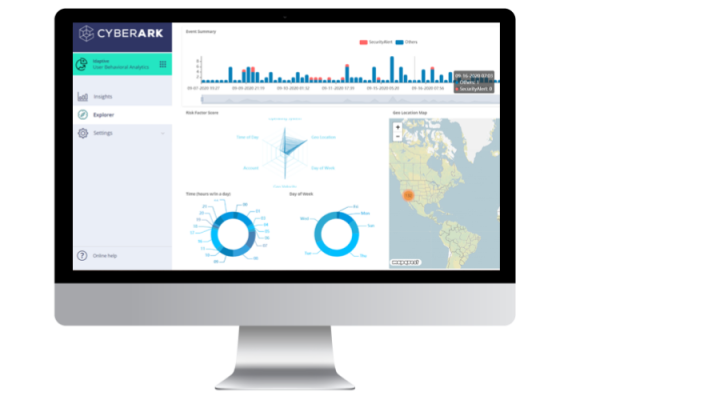Idaptive Multi-Factor Authentication
Leveraging device, network, and user behavior context, Idaptive MFA intelligently assigns risk to each access event and allows you to create dynamic access policies that are triggered when anomalous behavior is detected.
Idaptive Multi-Factor Authentication (MFA) adds an extra layer of protection before access to corporate applications is granted. Leveraging device, network, and user behavior context, Idaptive MFA intelligently assigns risk to each access event and allows you to create dynamic access policies that are triggered when anomalous behavior is detected.
Benefits
SECURE AUTHENTICATION
Eliminate reliance on passwords by securely authenticating users via a broad set of supported factors, including FIDO2 keys, virtual and hardware tokens, and mobile authenticators.
PROTECT EVERYTHING
Secure your entire enterprise to reduce the risk of security breaches. With Idaptive MFA, you can protect access to cloud and on-premises applications, endpoints, VPNs, and virtual desktops.
SIMPLIFY USER EXPERIENCE
Limit secondary authentication challenges to risky access requests with dynamic policies based on login context and historical user behavior.
Idaptive Multi-Factor Authentication secures your entire organization.
- Apps: Set up secondary authentication challenges to secure access to all or specific cloud, on-premise, mobile, and custom apps.
- VPNs: Protect remote access to your on-premise resources by integrating Idaptive MFA with Cisco, Palo Alto Networks, and Juniper VPN services.
- Workstations: Require secondary authentication to access your domain-joined workstations.
- Mac and Windows Endpoints: Enable MFA for macOS and Windows endpoints enrolled with Idaptive to require end-users to pass secondary authentication challenges during the login process.
- Virtual Desktops: Enable stronger authentication to VDIs such as Amazon Workspaces.
- Identity Providers: Secure access to applications and resources secured by supported third-party IDPs, such as Microsoft Active Directory Federation Services (ADFS).
- RADIUS servers: Add a secondary layer of protection to applications and resources that support RADIUS authentication.






